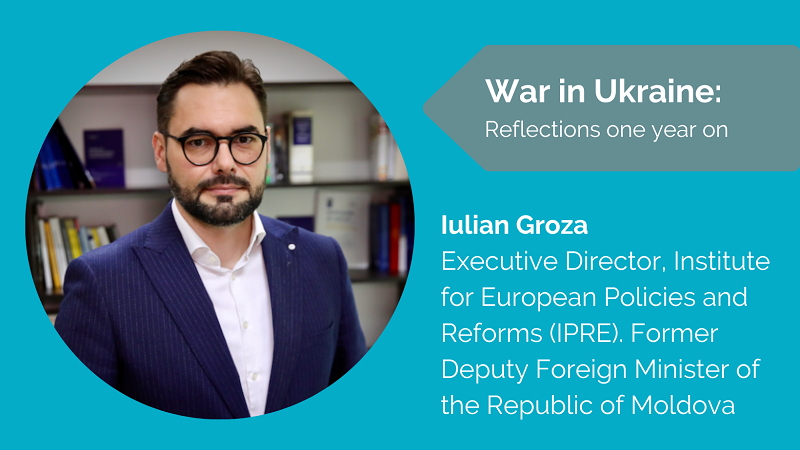One year on: The impact of Russia’s war in Ukraine on Moldova /// Foreign Policy Centre

Article by Iulian Groza
Russia’s brutal and unjustified war against Ukraine has damaged European security architecture irremediably. One year later, Ukraine is winning, Russia is losing, while the European Union and The North Atlantic Treaty Organization (NATO) are much stronger and united.
After Ukraine, Moldova is perhaps the most affected state, facing multiple challenges – amplified security threats, an unprecedented influx of refugees, massive trade disruptions, economic slowdown with an inflation rate exceeding 30 per cent in 2022, and a severe energy crisis. To increase energy security, Moldova has: connected to the EU’s power grid together with Ukraine, sourced natural gas from the market, and stored in Romania and Ukraine, with support from the EU and other international partners.
Russia’s hybrid aggression against Moldova has intensified using local political proxies, conducting cyberattacks, weaponising Moldova’s energy dependency and promoting disinformation campaigns to destabilise the country. The EU and NATO are helping Moldova to increase its security and defence capabilities. For example, thanks to the EU’s Peace Facility, Moldova’s defence budget has doubled over the last year. Positive historical developments have also emerged, with Moldova and Ukraine being granted EU candidate status in June 2022.
Amidst new security risks, Russia’s plots to destabilise the country have been exposed with threats from the Kremlin implying Moldova could meet the same fate as Ukraine. In the meantime, a mid-term reshuffle by the governing majority took place. The newly-elected Moldovan government appointed on 16th February 2023, has to further increase the domestic institutional resilience to revive the economy. Moreover, Moldova also needs to expedite the implementation of domestic systemic reforms in the justice sector, as well as the EU approximation process aiming to start EU accession negotiations.
Moldova’s resilience in the face of these multiple challenges is growing, but the country must continue to rely on international support to continue to overcome them and continue its path towards becoming part of the EU.

